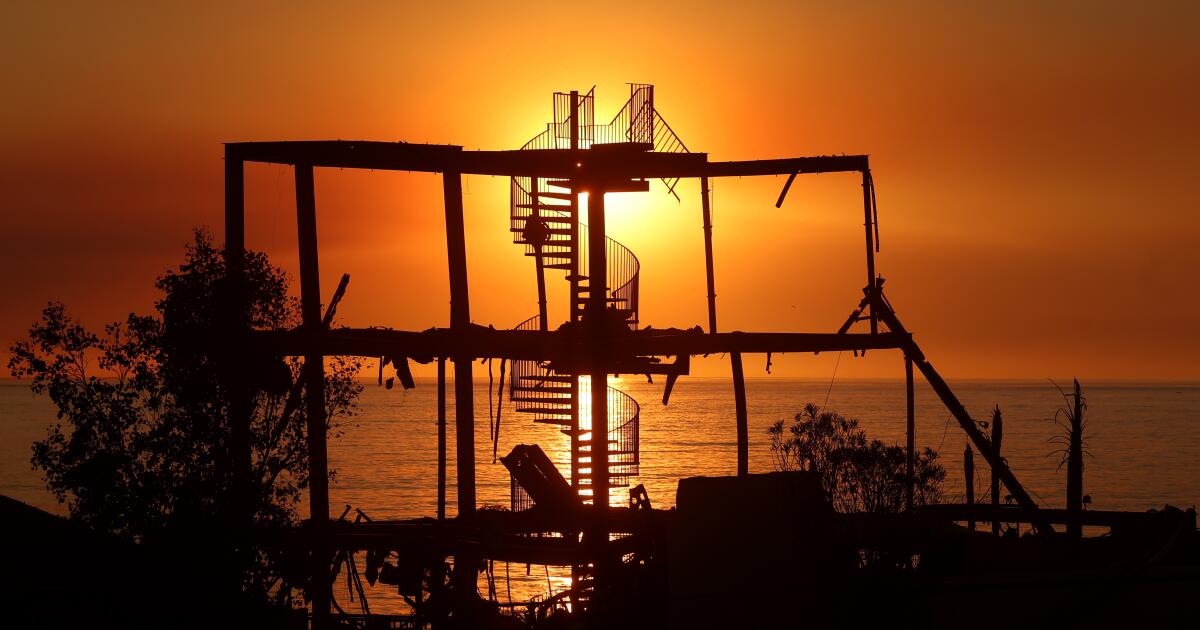Introduction to Malibu’s Property Market
Nine months after the Palisades and Eaton fires, the choice of whether to sell or stay has bewildered many homeowners. In Malibu, the situation is even more dire as international buyers and developers have snapped up properties while residents struggle with costly regulations.
You’re reading the Essential California newsletter
Two brothers from New Zealand bought up $65 million worth of burned-out lots on the beach this year. Real estate agents who spoke with my colleague Jack Flemming said they’ve noticed a surge in interest from Europe, Canada and Asia. Now, locals are worried that the city may never fully get back on its feet and property values will suffer. And as rebuilds get costlier, locals told The Times they are concerned that by the time Malibu eventually gets back on its feet, it won’t feel the same. Lifelong residences will be replaced by Airbnbs, development groups and deep-pocketed foreign buyers with enough time and money to navigate the laborious permit process.
A buyer’s market
After roughly 720 Malibu homes burned in the Palisades fire, burned-out lots are sitting empty. Of the 160 lots listed this year that are still on the market, 47 have received a price cut. In the Big Rock neighborhood, a burned lot listed for $1.65 million in September, but that price has already been lowered twice. On Las Flores Beach, an oceanfront parcel hit the market for $3 million in April, but with no takers, relisted for $1.95 million in October. Roughly 75 lots have sold in Malibu since the fire. But as more homeowners decide to sell instead of rebuild, sales are slowing down — and a buyer’s market is emerging.
Real estate agent Daniel Milstein told Jack that the buyer pool is limited to people who can afford to park their money for a while — three years, six years, maybe more. For those hoping to build a house right away, Malibu isn’t an option. “Malibu is stringent on permits. But that’s where the value is,” Milstein said. “It’s exclusive. And those that understand that value will be very happy with their property values down the road.” In the meantime, locals who lost homes are stuck in limbo.
Slow pace of permits
Rebuilding permits are more plentiful in Altadena and Pacific Palisades, the two communities hit hardest by the January fires. In the Palisades, 801 have been issued — around 43% of the total applications received, according to data from the state’s rebuilding dashboard. In Altadena, 577 permits have been issued — around 26% of the total applications received. So far, Malibu has only issued four, about 2% of the total applications received. That’s because Malibu locals face rebuild timelines significantly longer than their fellow rebuilding communities. FEMA’s updated flood elevation standards, which require many rebuilt oceanfront homes to sit higher above the sand, are one of the hurdles that several homeowners have run into over the past year.
In addition to the FEMA height requirements, Malibu’s new septic standards are also creating a snag. It requires rebuilders to replace existing septic systems with on-site wastewater treatment systems, which can cost hundreds of thousands of dollars to install. Despite only four building permits being issued, the rebuild is further along than the number suggests, according to Yolanda Bundy, Malibu Rebuild Center’s community development director. Applications have to pass through two phases: planning and entitlement, and building and safety review. Bundy said half of the roughly 160 applications have passed through planning, but are still waiting to get through the building phase. “It’s an oversimplification to say that we’re not making any progress compared to L.A.,” Bundy said. “Families are frustrated, but I want every family to know we’re doing our best to get them home.”
The week’s biggest stories
There were plenty of long looks on the Dodgers bench during Game 1 of the World Series at Rogers Centre on Friday night.
(Gina Ferazzi / Los Angeles Times)
Dodgers at the World Series
NBA gambling scandal
Crime and courts
What else is going on
Must-read
Other meaty reads
For your downtime
(Alisha Jucevic / For The Times)
Going out
Staying in
L.A. Affairs
Get wrapped up in tantalizing stories about dating, relationships and marriage.
Have a great day, from the Essential California team
Jim Rainey, staff reporter
Hugo Martín, assistant editor, fast break desk
Kevinisha Walker, multiplatform editor
Andrew Campa, Sunday writer
Karim Doumar, head of newsletters
How can we make this newsletter more useful? Send comments to essentialcalifornia@latimes.com. Check our top stories, topics and the latest articles on latimes.com.
Conclusion
The Malibu property market is facing significant challenges in the aftermath of the Palisades and Eaton fires. With many homes burned and rebuilds delayed due to stringent regulations, property values are plummeting. International buyers and developers are taking advantage of the situation, buying up burned-out lots at discounted prices. Locals are concerned that the city may never fully recover and that the character of the community will be lost.
FAQs
Q: How many homes were burned in the Palisades fire?
A: Approximately 720 Malibu homes were burned in the Palisades fire.
Q: How many lots have been sold in Malibu since the fire?
A: Roughly 75 lots have been sold in Malibu since the fire.
Q: What is the main challenge facing homeowners who want to rebuild?
A: The main challenge is the slow pace of permits, with Malibu having issued only four building permits so far.
Q: What are the new septic standards in Malibu?
A: Malibu’s new septic standards require rebuilders to replace existing septic systems with on-site wastewater treatment systems, which can cost hundreds of thousands of dollars to install.


